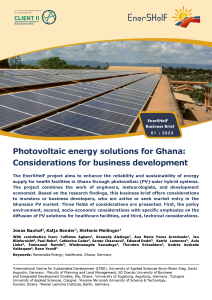Category Archives: Allgemein
Business Brief published
Click here to download our latest business brief:
Photovoltaic energy solutions for Ghana: Considerations for business development
EnerSHelF featured in Ghanaian Times
Two EnerSHelF policy briefs published
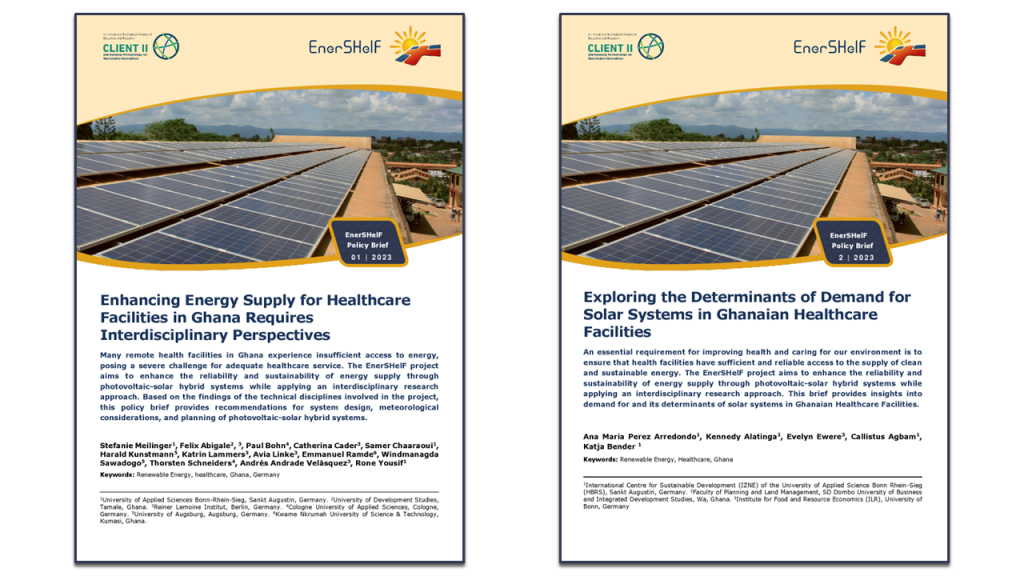
The EnerSHelF Project is finalizing its research results. In this process, two policy briefs have just been published. In a condensed form, they present findings and key recommendations derived from the research for relevant stakeholders and policy makers.
Enhancing Energy Supply for Healthcare Facilities in Ghana Requires Interdisciplinary Perspectives
In our first policy brief, our researchers grouped under work package 3 present an interdisciplinary, technical perspective on the requirements for enhancing energy supply for healthcare facilities in Ghana. The policy brief has different foci ranging from system design, meteorological considerations, and planning of photovoltaic-solar hybrid systems.
Exploring the Determinants of Demand for Solar Systems in Ghanaian Healthcare Facilities
Our second policy brief provides insights into demand for and its determinants of solar systems in Ghanaian Healthcare Facilities. The key insights and recommendations are based on 200 interviews conducted with health facility managers throughout Ghana. It unveils their perspectives on the potential of solar systems for healthcare services and their clinics.
Register now: EnerSHelF Closing Symposium
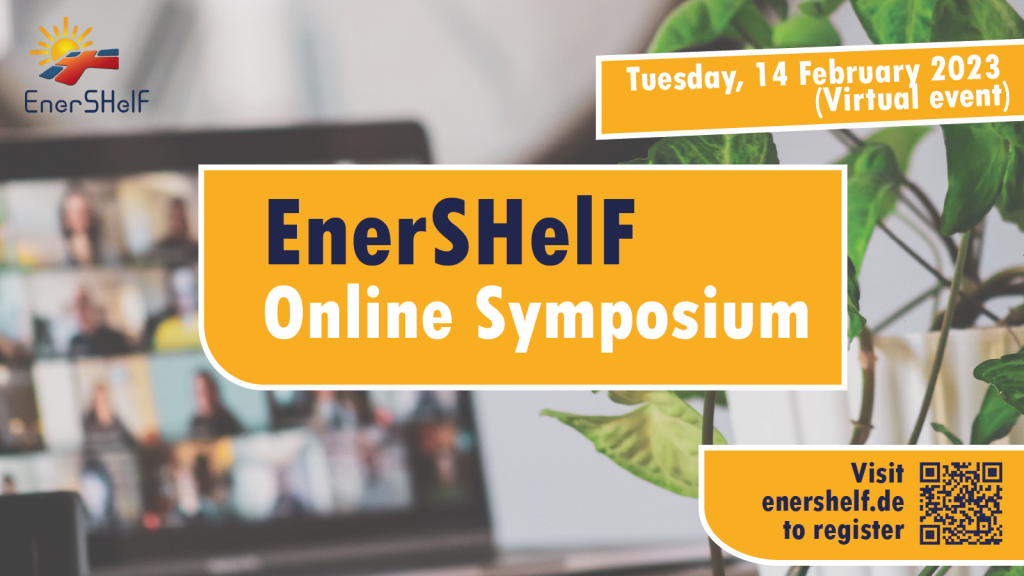
Tuesday, 14 February 2023 (Virtual event)
Since the project’s start in 2019, the team of EnerSHelF has been working on both technical and politico-economic questions to improve and disseminate marketable PV-based energy solutions for health facilities in Ghana. In March 2023, the project comes to an end, and we want to share our results and insights to stakeholders in the public and private sphere in our online symposium on
14th February 2023 10:00-15:00 CET.
Each individual work package will unfold their research with input from both our Ghanaian and German partners. The results are of interest to a broad audience, including researchers, private sector organisation, public authorities as well as international donor organisations working on either the expansion of Solar PV or on enhancing health services in Ghana and beyond. The registration link will direct you to the online registration via Webex where the symposium will be hosted.
Click here to download the agenda
Click here to register for the event
Insights into load profiles of Ghanaian health facilities
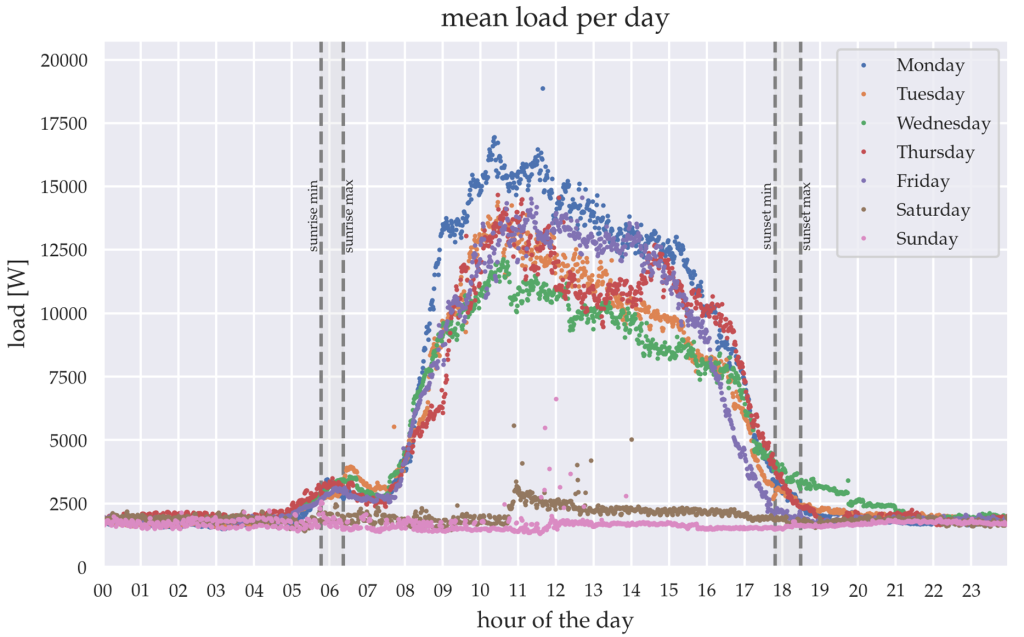
Continue reading Insights into load profiles of Ghanaian health facilitiesSamer Chaaraoui from the University of Applied Sciences Bonn-Rhein-Sieg is analyzing load data from the field sites of the EnerSHelF project. By analyzing the data, he can identify when and where electricity is used and what indication it has for planning PV-diesel hybrid systems for health facilities. In this article, he is given an insight into the identified load profiles and what they reveal. To ensure confidentiality, the load profiles have been anonymized.
Development of an electrification and market introduction strategy
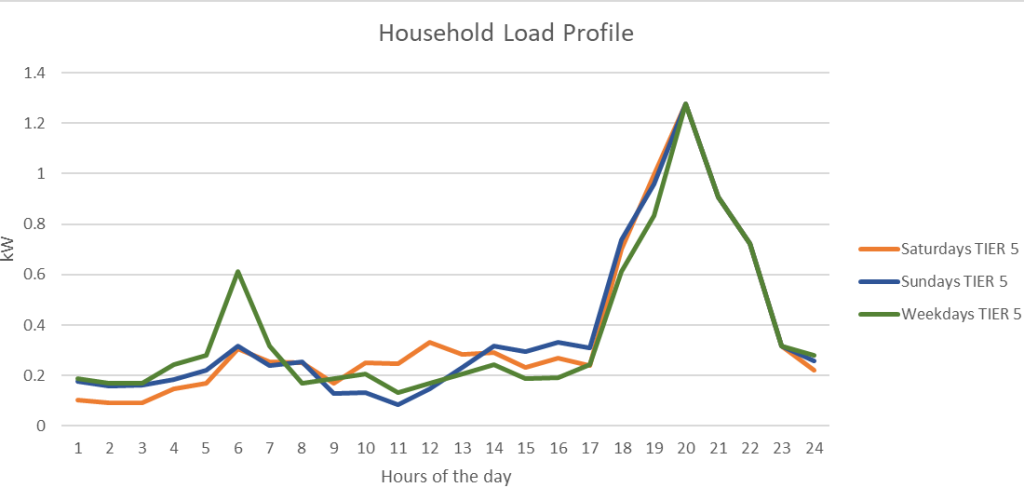
Interview with Katrin Lammers, Avia Linke & Andrés Andrade on the recent working steps of the Reiner Lemoine Institute for the EnerSHelF project.
In the past interview with your colleague Catherina Cader, she showed first maps visualizing the health centre distribution and electricity supply across Ghana. How have you developed the data since?
Since the last time, we continued to gain insights from our geospatial data by analysing it together with newer, more up-to-date datasets. We have now, for example, a better understanding of the number of hospitals more likely to need electrification, the types and sizes of communities that surround our hospitals, and the population that would be covered by their services. We have been compiling and processing these data, picking attributes and information from them that we think will be more relevant for our final visualization. For this, during the past months we have been thinking of and working on a concept for the development of a web map tool that should display not only the already mentioned datasets, but also our electrification strategy, in a clear and meaningful way.
Continue reading Development of an electrification and market introduction strategyMaintaining EnerSHelF’s equipment in Ghana
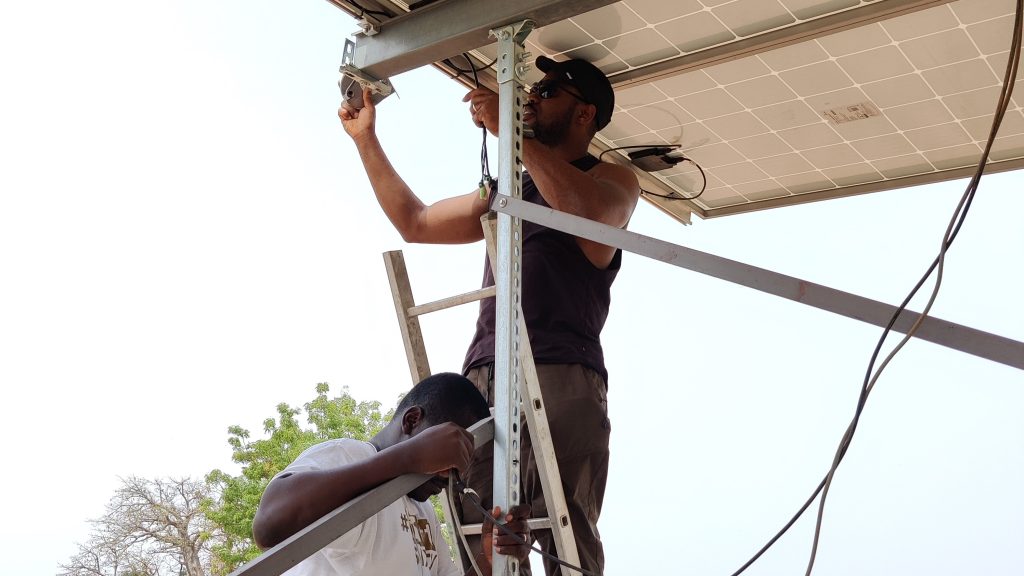
Continue reading Maintaining EnerSHelF’s equipment in GhanaIn late March, Rone Yousif from University of Applied Sciences Bonn-Rhein-Sieg travelled to Ghana to check and maintain the measurement instruments and solar setup. He was accompanied by Mohammed Abass from WestfalenWIND. Over the course of three weeks, they travelled to the three pilot sites and met with the Ghanian project partners. The following blogpost highlights the different steps of their journey to give the reader an understanding of the practical work in the field.
Why research communication is pivotal for research projects
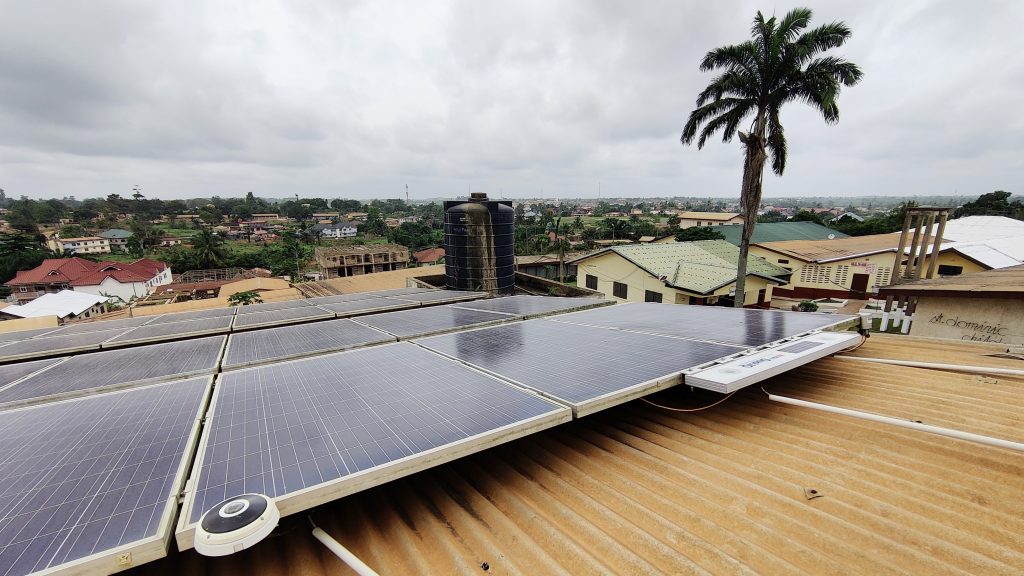
Interview with Jonas Bauhof and Susanne von Itter from EADI on the role of communication work for research projects.
EADI is the knowledge and network partner for the EnerSHelF project. Can you explain to us, what is entailed in this role?
We are responsible of disseminating the project’s research results both to our stakeholders but also the public. For this, we use different forms of communication and are also involved in planning network events and managing the website. By doing so, we aim to enhance the uptake of research results among relevant stakeholders in academia and beyond. It is essential to increase the real-world impact of the EnerSHelF project – also past its funding period. As the leading European network in the field of development studies, EADI can use its network to reach out to relevant outputs and institutions. This helps us to reach out to a broad set of actors in the field.
Continue reading Why research communication is pivotal for research projectsHealth-Energy-Nexus: How off-grid energy can play a vital role in quality healthcare provision in Sub-Saharan Africa
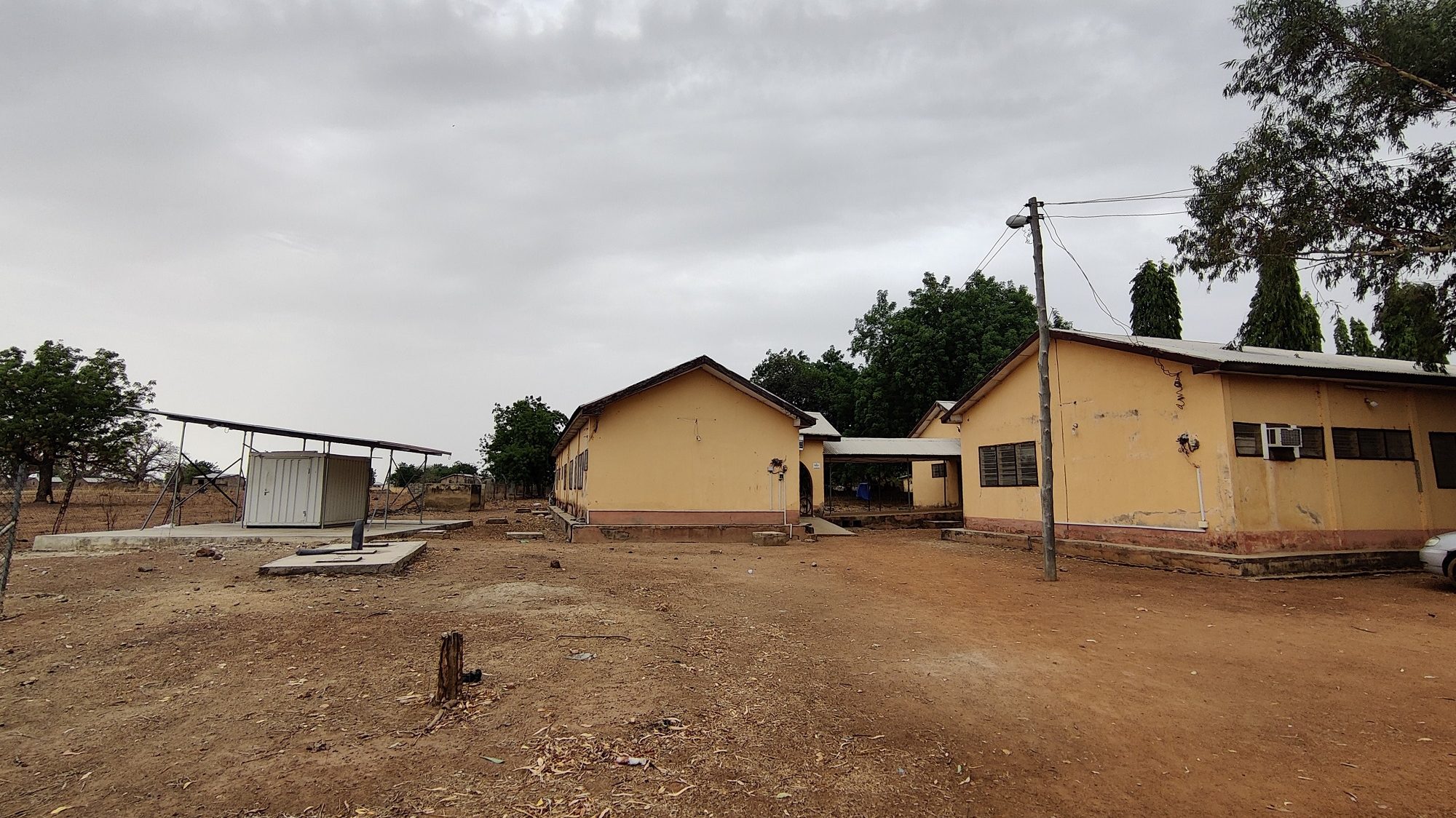
Access to electricity
In 2019, 770 million people were without access to electricity globally[1]. They are left without the possibility of using electric light at night, powering refrigerators and stoves, or charging their phones and other devices. Until 2019, the number constantly decreased but the Covid-19 pandemic reversed the trend. In its World Energy Outlook 2021 report, the International Energy Agency (IEA) predicts that between 2019 and 2021 the global number of people without access to electricity stuck at its pre-crisis level – after seeing improvements by around 9% annually since 2015[2]. In Sub-Saharan Africa (SSA), for the first time since 2013, the numbers are likely to have even increased in 2020.
Continue reading Health-Energy-Nexus: How off-grid energy can play a vital role in quality healthcare provision in Sub-Saharan Africa